The BEST episodes of Dispatches
Every episode of Dispatches ever, ranked from best to worst by thousands of votes from fans of the show. The best episodes of Dispatches!
Covers issues about British society, politics, health, religion, international current affairs and the environment, and often features a mole inside organisations under journalistic investigation.
#1 - Britain's Sex Gangs
Season 2011 - Episode 29 - Aired 11/7/2011
Research suggests that thousands of children are potentially being sexually exploited by street grooming gangs. This may only be the tip of the iceberg, as experts believe many crimes of this nature go unreported. Journalist Tazeen Ahmad investigates street grooming and hears from community leaders who say enough is enough and demand action on the issue. She meets victims of grooming and their parents, whose lives have been torn apart. She hears how girls as young as 12 have been targeted by these gangs and so terrorised and brainwashed that they keep their ordeal secret for years. In a particularly shocking encounter she talks to two young men who explain in detail how grooming by gangs is perpetrated, why virgins are more highly prized and how the commerce of this type of brutal sexual exploitation unfolds.
Watch Now:Amazon#2 - Secrets of Cadbury
Season 2016 - Episode 8 - Aired 3/21/2016
It's six years since Britain's beloved Cadbury was bought by American giant Kraft. As the Easter chocolate indulgence approaches, the episode will explore what's been happening to one of our favourite brands.
Watch Now:Amazon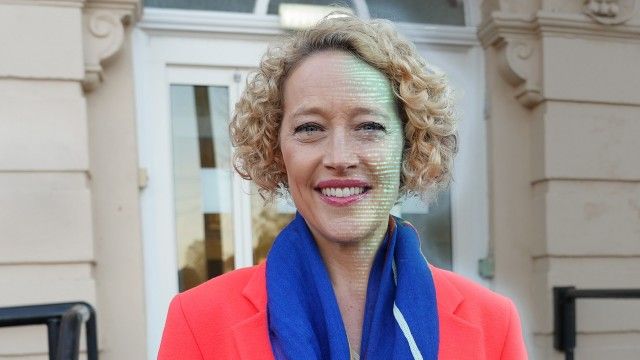
#3 - Can AI Steal Your Vote?
Season 2024 - Episode 7 - Aired 6/27/2024
Could AI influence the way you vote? As the dangers of AI targeted political material become apparent, Dispatches illustrates the effect AI could have on 12 British households of undecided voters.
Watch Now:Amazon
#4 - Lords, Billionaires and the Russian Connection
Season 2009 - Episode 37 - Aired 11/30/2009
Dispatches investigates the elusive Russian oligarchs who have been trying to buy up our football teams, newspapers and car companies.
#5 - Lawless Britain: Where are the Police?
Season 2018 - Episode 22 - Aired 10/8/2018
Have you been burgled, robbed or assaulted but feel that the police brushed you off? You're not alone. Dispatches hears from victims of crime who claim that the police have failed to investigate their cases fully, if at all. These are stories of violent attacks, homes broken into, property vandalised and family businesses left to fend for themselves against thieves. Exclusive research featured in the programme raises concerns that Britain is now sliding into a new era of policing. One of the most comprehensive analyses to date reveals the levels of crimes that many forces are choosing not to investigate. Dispatches also examines the wider impact of the policy of 'screening out' and other practices by the police. Some victims are being left to investigate and seek justice themselves, others feel that law and order is slipping away from their community.
Watch Now:Amazon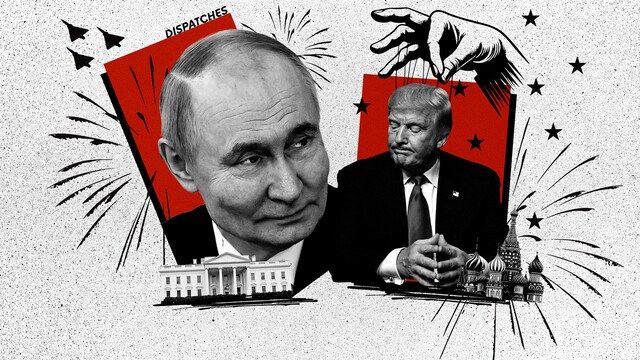
#6 - Trump: Moscow’s Man in the White House?
Season 2025 - Episode 6 - Aired 7/17/2025
What’s the truth about Trump’s relationship with Putin? Insiders share a unique behind-the-scenes view on the greatest political story of the decade.
Watch Now:Amazon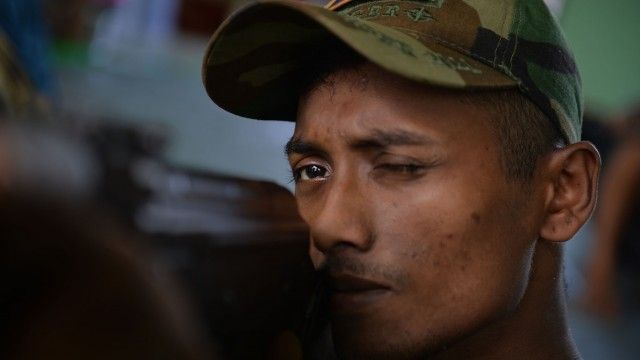
#7 - Myanmar: The Forgotten Revolution
Season 2022 - Episode 13 - Aired 7/25/2022
A look at the world's forgotten civil war, where over 20,000 people have been reported dead, and thousands are fighting against a military coup that has removed elected government.
Watch Now:Amazon#8 - Britain's New Build Scandal
Season 2019 - Episode 19 - Aired 7/15/2019
Reporter Liam Halligan investigates allegations of shoddy standards, poor customer care and excessive profits at Britain's second biggest - and most profitable - builder, Persimmon.
Watch Now:Amazon#9 - Grenfell: Did the Fire Brigade Fail?
Season 2019 - Episode 4 - Aired 2/18/2019
Dispatches investigates the London Fire Brigade's response to the Grenfell fire, through interviews with survivors and firefighters, and using critical new evidence released by the public inquiry.
Watch Now:Amazon#10 - Getting Rich From the Housing Crisis
Season 2018 - Episode 16 - Aired 7/16/2018
As Britain faces a major housing shortage, how is it that some of those responsible for providing the social housing that we so desperately need seem to be doing so well out of the crisis? Reporter Anthony Barnett travels the country to hear from communities under threat at a time when the pay of social housing bosses has hit record levels, while the provision of housing for social rent has hit an all-time low. Among his discoveries is that an executive of a housing association in one of the poorest parts of the country received a pay-out of more than a million pounds.
Watch Now:Amazon#11 - Secrets of Coca-Cola
Season 2017 - Episode 11 - Aired 3/27/2017
Dispatches investigates Coca-Cola, one of the world's most iconic brands.
Watch Now:Amazon#12 - Britain's Benefits Experiment
Season 2015 - Episode 22 - Aired 11/2/2015
Tazeen Ahmed reports on a Department for Work and Pensions initiative to encourage people in work and in receipt of benefits to boost their income and reduce their dependency on the state. The project has implications for Britain's million lowest paid workers, and this documentary investigates if advice and encouragement will help them earn more, or if financial punishments, also known as sanctions, are the best way to get the working poor off benefits.
Watch Now:Amazon#13 - The Hunt for Britain's Sex Gangs
Season 2013 - Episode 19 - Aired 5/23/2013
In 2010 Telford police allowed cameras to start filming what was to become one of the biggest child sex abuse cases in the UK. The investigation, Operation Chalice, eventually encompassed over 100 victims, and around 200 suspected perpetrators. The Hunt for Britain's Sex Gangs follows - with unprecedented access - a live police investigation, showing just how difficult it is to secure justice for victims of sexual abuse, especially when some girls were just 11 when they were first abused. Gaining the trust of victims - who as a result of the grooming process, don't see themselves as victims - is key to the success of the case, but it takes months for the police to win their trust and keep them on board as they prepare for the harrowing process of going to court. As the police work with the victims, they begin to understand a vicious cycle of grooming, which starts with flattery and friendship, then moves on to a more overtly sexual relationship, and finally becomes exploitative as the groomers pass the girls around their networks of friends and family for sex.
Watch Now:Amazon#15 - MMR: What They Didn't Tell You
Season 2004 - Episode 7 - Aired 11/18/2004
In February 1998 Dr Andrew Wakefield claimed to have discovered a possible link between the MMR vaccine and autism. A global health scare ensued. This documentary investigates the scare and some of the facts that parents were not told at the time.
Watch Now:Amazon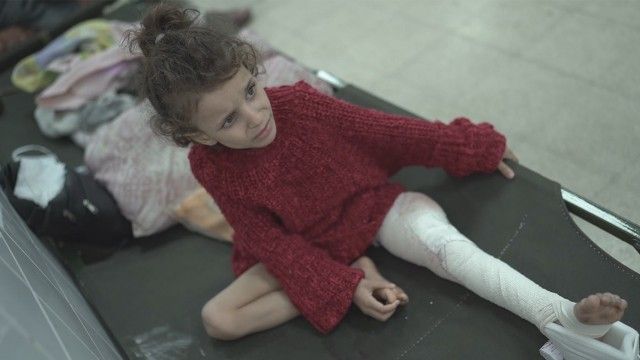
#16 - Kill Zone: Inside Gaza
Season 2024 - Episode 3 - Aired 5/27/2024
The story of the Israeli military assault on Gaza. Seen through the eyes of children, journalists and doctors, Dispatches takes an unflinching look at the horrific challenges and heartbreaking loss.
Watch Now:Amazon#17 - Is Britain Full?
Season 2017 - Episode 23 - Aired 10/30/2017
Is the country at breaking point? For many, high levels of immigration have caused real issues and arguably led directly to the Brexit vote. But is Britain really full? For Dispatches, Michael Buerk investigates the story behind the numbers and the impact of internal migration. New research reveals the true scale of massive movement within the UK and its impact on both overpopulated and underpopulated areas. Buerk travels to a northern English city that has almost halved in size over the years, meeting young people forming the exodus of migrants heading south for opportunity and better pay. Here he finds forgotten streets full of empty homes. The North-South divide is not just about wealth but also about numbers. Buerk asks whether we ignore the issue of internal migration at our peril and whether, with Brexit on the horizon, this issue will finally be discussed.
Watch Now:Amazon#18 - Escape From The Taliban
Season 2021 - Episode 19 - Aired 11/27/2021
First-hand footage of the Taliban capture of Kabul and the subsequent flight of refugees, shot by a documentary crew that were filming in Afghanistan at the time. The film includes coverage of female rights activist Zoya Faizi's attempt to escape the country, and one of the senior figures of the Al Qaeda-backed Haqqani network visiting a prison where, until recently, he had been held.
Watch Now:Amazon#19 - Britain's Coronavirus Catastrophe
Season 2020 - Episode 9 - Aired 6/3/2020
With Britain's Covid death rate one of the world's highest, Antony Barnett examines the evidence and asks did the government get it wrong?
#20 - The Truth About Traveller Crime
Season 2020 - Episode 8 - Aired 4/16/2020
Anja Popp goes in search of the truth about crimes linked to traveller sites. She talks to members of the public who have experienced crime waves and intimidation, goes out on patrol with police dealing with rural incidents and hears from travellers and their advocates, who say they suffer prejudice and attack.
Watch Now:Amazon#21 - The Truth About Vegans
Season 2019 - Episode 1 - Aired 1/2/2019
Reporter Morland Sanders investigates the rising popularity of veganism. It's better for your health, the environment and animals but why do some activists resort to such extreme tactics to promote it?
Watch Now:Amazon#22 - Trouble on the Trains
Season 2017 - Episode 24 - Aired 11/6/2017
Dispatches gains exclusive access to go undercover with the British Transport Police's crime unit to expose racism, homophobia and anti-Semitism by football fans on Britain's trains. Reporter Morland Sanders investigates as ordinary passengers are subjected to shocking abuse. One youth sings anti-Semitic songs, and another group of fans subject travellers to their racism - all caught on secret cameras. The cops try to track them down and put them away. Paul Crowther, the BTP's most senior police officer, discloses that anti-social and abusive behaviour on Britain's trains by football supporters is under-reported by the public because it is tolerated as part of 'football culture'.
Watch Now:Amazon#23 - Undercover: Britain's Cheap Clothes - Part 2
Season 2017 - Episode 3 - Aired 1/30/2017
British shoppers have embraced the home delivery economy. During the Black Friday and Cyber Monday shopping frenzy before Christmas, the total online spend was almost £6.5 billion, driven by huge discounts and sales promotions. There are now 1500 warehouses servicing these orders in the UK, which is the equivalent of roughly 5500 football pitches or the total size of Cambridge. In this second Dispatches investigation into Britain's cheap clothing market, Morland Sanders investigates the working conditions inside some of these warehouses. Secret filming shows the realities of operatives walking miles of floorspace a day to get orders out on time at the busiest time of the year and reveals what can happen when workers are unwell, arrive at work late or don't want to work overtime. What does Black Friday mean for workers on the receiving end of your orders?
Watch Now:Amazon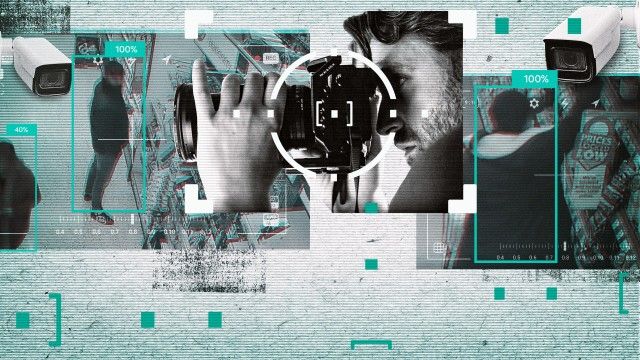
#24 - Britain's Shoplifting Gangs Exposed
Season 2024 - Episode 12 - Aired 11/25/2024
In this high-stakes true crime investigation, Dispatches goes undercover to expose the organised criminal networks behind the UK's shoplifting epidemic.
Watch Now:Amazon#25 - North Korea: Life Inside The Secret State
Season 2013 - Episode 33 - Aired 11/13/2013
Kim Jong Un rules the world's most secret and repressive state. But thanks to the digital revolution, Kim can no longer keep the world from seeing the reality of life in North Korea - or stop his own people from discovering that everything they have been told about the outside world is a lie.
Watch Now:Amazon